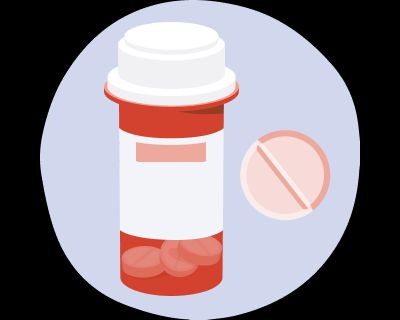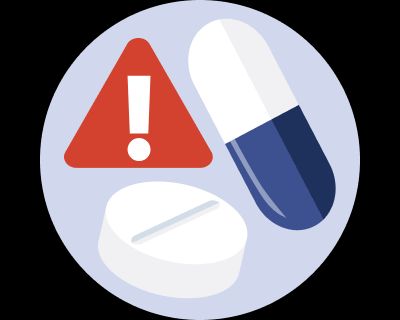As with other drugs, Humira (adalimumab) can cause side effects, such as headache and injection site reactions. If you are not able to tolerate side effects of Humira, talk with your doctor or pharmacist.
Humira (adalimumab) is a brand-name injectable biologic medication. It’s approved by the Food and Drug Administration (FDA) to treat several different inflammatory conditions, including Crohn’s disease, rheumatoid arthritis, and plaque psoriasis.
If you have problems with side effects from Humira, talk with your doctor or pharmacist. They can discuss ways to manage side effects or other available treatment options. Do not stop Humira treatment without consulting your doctor first.
For additional information about Humira, including details about its uses, see this Humira overview article.
Humira has boxed warnings. A boxed warning is the most serious warning from the FDA. For details, see the “Boxed warnings for Humira” section.
Humira can cause certain side effects, some of which are more common than others. These side effects may be temporary, lasting a few days or weeks. But if the side effects last longer than that, bother you, or become severe, be sure to talk with your doctor or pharmacist.
These are just a few of the more common side effects reported by people who took Humira in clinical trials:
- headache
- injection site reactions
- rash
- upper respiratory infections, such as the common cold
For more information about some of these side effects, see “Managing side effects.”
Mild side effects can occur with Humira use. This list doesn’t include all possible mild side effects of the drug. For more information, you can refer to Humira’s medication guide.
Mild side effects that people receiving Humira have reported include:
- headache
- injection site reactions
- rash
- upper respiratory infections, such as the common cold
These side effects may be temporary, lasting a few days or weeks. But if the side effects last longer than that, bother you, or become severe, be sure to talk with your doctor or pharmacist.
For more information about some of these side effects, see “Managing side effects.”
Note: After the FDA approves a drug, it tracks and reviews side effects of the medication. Sharing your experience helps make medications safer for everyone by giving doctors and researchers more information about how the drug works in real life. If you develop a side effect from Humira treatment and want to tell the FDA about it, visit MedWatch or call 800-FDA-1088.
Humira may cause serious side effects, although they aren’t common. The following list may not include all possible serious side effects of the drug. For more information, you can refer to Humira’s medication guide.
If you develop serious side effects while receiving Humira, call your doctor right away. If the side effects seem life threatening or you think you’re having a medical emergency, immediately call 911 or your local emergency number.
Serious side effects that have been reported, and their symptoms, can include:
- nervous system problems (such as Guillain-Barré syndrome), which can include symptoms such as:
- dizziness
- tingling or numbness
- weakness that affects your arms or legs
- vision problems
- blood cell problems (such as aplastic anemia), which can include symptoms such as:
- bruising or bleeding more easily than usual
- fever that doesn’t go away
- pallor (skin that looks paler than usual)
- heart failure, which can include symptoms such as:
- swelling in your ankles or feet
- sudden weight gain
- shortness of breath
- new or worsening psoriasis, which can include symptoms such as:
- red, scaly patches on your skin
- raised bumps on your skin
- lupus-like syndrome, also known as drug-induced lupus, which can include symptoms such as:
- chest discomfort or pain that doesn’t go away
- joint pain
- a rash on your arms or cheeks that gets worse if exposed to sunlight
- shortness of breath
- liver problems
- reactivation of hepatitis B virus
- risk of serious infections
- risk of cancer
For more information about some of these side effects, see the “Managing side effects” and “Boxed warnings for Humira” sections.
Side effects after first dose of Humira
It’s possible to have side effects after your first dose of Humira, such as injection site reactions. These reactions may include itching, pain, or swelling in the area of your Humira injection. It’s also possible to experience other side effects, including serious side effects, after your first dose. As a precaution, you’ll receive your first Humira dose at your doctor’s office or clinic.
Depending on the condition you’re using Humira to treat, you may receive the drug every week or every other week. It’s possible to experience side effects after these other doses, as well. Learn more about Humira’s dosing schedule.
If you have questions about what to expect after your first dose of Humira, talk with your doctor or pharmacist.
Allergic reactionFor some people, Humira can cause an allergic reaction. In general, symptoms of allergic reaction can be mild or serious.
Ways to manage
For mild allergic reaction symptoms, such as a mild rash, call your doctor right away. They may recommend treatments to help manage your symptoms. They’ll also let you know whether you should keep using the medication.
For severe allergic reaction symptoms, such as swelling or trouble breathing, call 911 or your local emergency number right away. These symptoms require immediate medical care because they can become life threatening. If you’ve had a serious allergic reaction to Humira, your doctor may recommend taking a different medication instead.
It’s possible for Humira treatment to cause long-term side effects.
For example, the drug has caused growth of new cancers. It has also caused existing tumors (masses of cancerous tissue) to grow. Humira has a boxed warning about the risk of cancer. For more information, see the “Boxed warnings for Humira” section.
If you’re concerned about long-term side effects from Humira, talk with your doctor or pharmacist.
Humira may cause several side effects. Here are some frequently asked questions and answers about the drug’s side effects.
Can using Humira cause weight gain or weight loss?
People receiving Humira in clinical trials did not report weight gain or weight loss as side effects.
But unintended weight loss may be a symptom of other side effects of Humira, such as an infection. And sudden weight gain may be a symptom of heart failure, which is a rare but serious side effect of Humira. Weight loss may also be related to the condition that you are receiving Humira to treat, such as ulcerative colitis or Crohn’s disease.
If you’re concerned about your weight while using Humira, talk with your doctor. They can discuss ways to help maintain a weight that’s appropriate for you. If you notice unintended, sudden changes in your weight, call your doctor. This may be a symptom of more serious side effects of Humira.
Is anxiety a side effect of Humira?
No, anxiety isn’t a side effect of Humira. This wasn’t reported as a side effect in clinical trials of the drug. But Humira is used to treat some chronic (long term) conditions, and having a chronic condition has been linked to anxiety.
If you have questions about anxiety or side effects of Humira, talk with your doctor or pharmacist.
Does Humira cause depression?
Depression is not a known side effect of Humira. It wasn’t reported as a side effect in clinical trials of Humira. Depression could be related to having a chronic condition, such as those that Humira is used to treat.
If you have questions about side effects of Humira, or about depression, talk with your doctor or pharmacist.
Is hair loss one of Humira’s side effects?
It’s not likely. Hair loss wasn’t a side effect seen during clinical trials of Humira.
There have been reports of hair loss in people receiving Humira since the drug was approved. But it’s unclear how often this has occurred or whether Humira was the cause.
If you have questions or concerns about hair loss while using Humira, talk with your doctor. They can suggest ways to treat this side effect. They may have you stop Humira and try another medication for your condition.
Discover more about Humira
Humira has boxed warnings for the risk of serious infections and cancer. A boxed warning is the most serious warning from the FDA. It alerts doctors and patients about drug effects that may be dangerous.
Serious infections
Humira treatment can increase your risk of serious bacterial, fungal, and viral infections, including tuberculosis (TB). This is because the drug affects your immune system, and can lower your body’s ability to fight infections. These infections may require treatment in the hospital and can be fatal, although this is rare.
What you can do
Before you start Humira, your doctor will test you for TB. If you test positive for TB, it will need treatment before you can safely receive Humira.
During Humira treatment, your doctor will closely monitor you for symptoms of any infections. They’ll likely have you stop using Humira if you develop a serious infection.
Cancer
Humira may increase your risk for developing certain types of skin cancer, although this is rare.
Cancers have occurred in people receiving Humira, including adolescents and children. These cancers include lymphomas (cancers of the white blood cells).
In particular, a lymphoma called hepatosplenic T-cell lymphoma has been rarely reported, mostly in young adult and adolescent males* with either Crohn’s disease or ulcerative colitis.
* Sex and gender exist on spectrums. Use of the term “male” in this article refers to sex assigned at birth.
What you can do
During Humira treatment, your doctor will monitor you for new cancers, including lymphoma.
If your skin develops a bump or an open sore that doesn’t heal, call your doctor. This may be a sign of skin cancer caused by Humira. You should also call your doctor if you develop lymphoma symptoms or possible symptoms of other cancers, such as:
Learn more about some of the side effects that Humira may cause.
Skin-related side effects
It’s possible to have skin-related side effects from Humira. These may include a rash or injection site reactions. Both of these side effects were more common side effects in clinical trials, and were mild in most cases. Rarely, a rash can be a sign of rare but more serious side effects of Humira, such as an allergic reaction.
Injection site reactions happen at or near the site where you received your Humira injection. Symptoms can include itching, pain, or swelling.
Humira can also cause new or worsen psoriasis, a condition Humira is approved to treat. Psoriasis is a skin condition that causes symptoms such as red scaly patches of skin, and raised bumps that contain pus. This side effect was not seen in clinical trials, but has been reported since the drug was approved.
What you can do
If you experience a rash during Humira treatment, call your doctor. They can help determine if it’s a sign of a more serious side effect and how to treat it. If the rash is mild, it may also go away on its own, as you continue to receive Humira.
To help avoid injection site reactions, try to rotate where you inject your Humira doses. Do not give injections in places where your skin is hard, red or discolored, or bruised.
Injection site reactions usually go away on their own after a few days. But, if you experience a reaction that doesn’t go away or bothers you, talk with your doctor. They can suggest ways to relieve your symptoms. They may also suggest trying a drug other than Humira for your condition.
You should also talk with your doctor if you develop new or worse psoriasis symptoms. Your doctor may have you stop Humira if this happens.
Liver problems
Very rarely, Humira may cause liver problems, including liver damage and sudden liver failure. But liver problems have rarely been reported in people using the drug since it was approved.
Symptoms of liver problems can include:
What you can do
Call your doctor right away if you notice any symptoms of liver problems. Sometimes liver problems may require treatment at the hospital. If you do develop liver problems, your doctor may have you stop Humira and try a different medication for your condition.
Hepatitis B reactivation
If you’ve previously had an infection called hepatitis B, Humira can make the virus that causes it active again. This can cause symptoms such as:
Rarely, hepatitis B reactivation in people taking drugs such as Humira can be fatal.
Before you begin Humira, you’ll take a hepatitis B virus (HBV) test. Your doctor may continue to test you for HBV during Humira treatment, and for several months after your last dose if you stop Humira.
What you can do
If you develop symptoms of hepatitis B reactivation, talk with your doctor right away. They can determine the best way to treat your symptoms. Sometimes, this may involve you stopping taking Humira.
Take note of the following important information to consider before receiving Humira.
Humira has boxed warnings. A boxed warning is the most serious warning from the FDA. For more information, see the “Boxed warnings for Humira” section.
Other precautions
Be sure to talk with your doctor about your health history before you start receiving Humira. This drug may not be right for you if you have certain medical conditions or other factors that affect your health. Conditions and factors to consider include:
Active infection: You should not start Humira if you have any kind of infection, unless your doctor approves. Your doctor may want to treat your infection before you receive Humira. Make sure to tell your doctor about all conditions you have, including any infections, before starting Humira treatment. Also, Humira has a boxed warning for serious infections (see “Boxed warnings for Humira” for details).
Heart failure: Humira belongs to a group of drugs called tumor necrosis factor (TNF) blockers. This type of drug has been reported to cause heart failure or make existing heart failure worse. So if you have heart failure, your doctor will want to closely monitor you during Humira treatment.
Liver damage: If you have a history of liver damage or liver disease, make sure to discuss this with your doctor before starting Humira. It’s possible for TNF blockers such as Humira to cause severe liver damage. For this reason, your doctor may monitor your liver function during Humira treatment.
Nervous system problems, such as multiple sclerosis (MS): Humira can make symptoms of nervous system problems and demyelinating diseases worse. Examples of these types of conditions include MS and seizures. If you have a nervous system problem, be sure to talk with your doctor about whether Humira is the best choice for you.
Hepatitis B: If you’ve had hepatitis B in the past, Humira can cause the virus to become active if you stop receiving the drug. Be sure your doctor is aware if you’ve ever had hepatitis B. Before you begin Humira, your doctor will have you take a test for hepatitis B. You may continue to have these tests while receiving Humira, and for several months after your last dose if you stop Humira.
Cancer: Humira can cause cancer, or can cause existing cancerous tumors to get worse. Humira has a boxed warning for this side effect (see “Boxed warnings for Humira” for details). If you have cancer, talk with your doctor before you start Humira.
Recent vaccination: If you’ve recently received a live vaccine, talk with your doctor about when it’s safe for you to begin Humira. (Live vaccines contain a small amount of a weakened live virus or bacteria.) You should not receive live vaccines during Humira treatment. Your doctor may want to make sure you’re up to date on your vaccinations before you begin Humira.
Latex allergy or allergic reaction: You should not receive Humira if you’ve ever had an allergic reaction to any of its ingredients, including latex. Some Humira products come with a needle cover that could contain natural rubber latex. If you have a latex allergy, talk with your doctor about other treatments or other forms of Humira that may be better choices for you.
Pregnancy and breastfeeding: It isn’t known for sure whether Humira is safe to use while pregnant or breastfeeding. You and your doctor should decide whether Humira is the right choice for you while you’re pregnant or breastfeeding. For more information and guidance, see this overview on Humira and reproductive health.
Alcohol consumption: There are no known interactions between alcohol and Humira. But drinking alcohol may worsen some of the conditions Humira is used to treat. These include plaque psoriasis and Crohn’s disease. If you have questions about drinking alcohol while receiving Humira, talk with your doctor.
Disclaimer: Medical News Today has made every effort to make certain that all information is factually correct, comprehensive, and up to date. However, this article should not be used as a substitute for the knowledge and expertise of a licensed healthcare professional. You should always consult your doctor or another healthcare professional before taking any medication. The drug information contained herein is subject to change and is not intended to cover all possible uses, directions, precautions, warnings, drug interactions, allergic reactions, or adverse effects. The absence of warnings or other information for a given drug does not indicate that the drug or drug combination is safe, effective, or appropriate for all patients or all specific uses.






